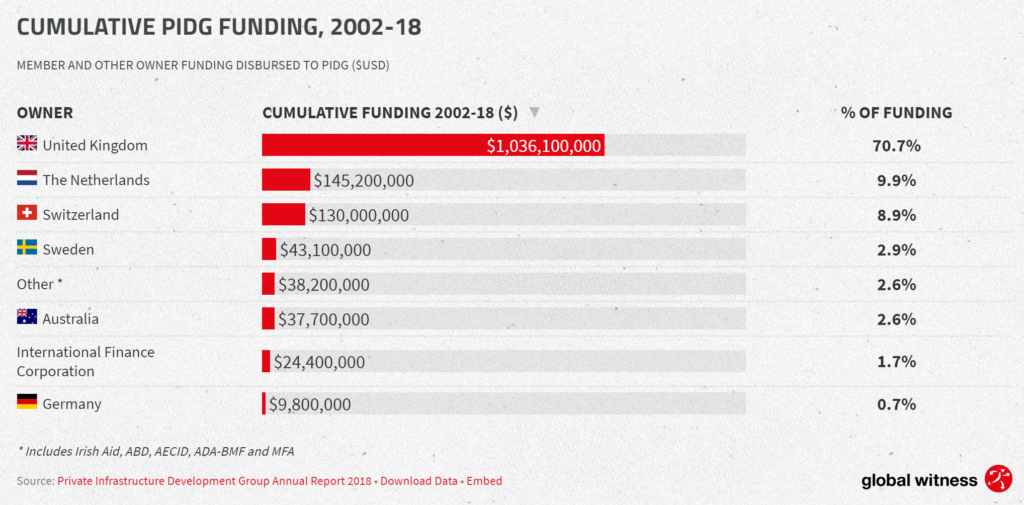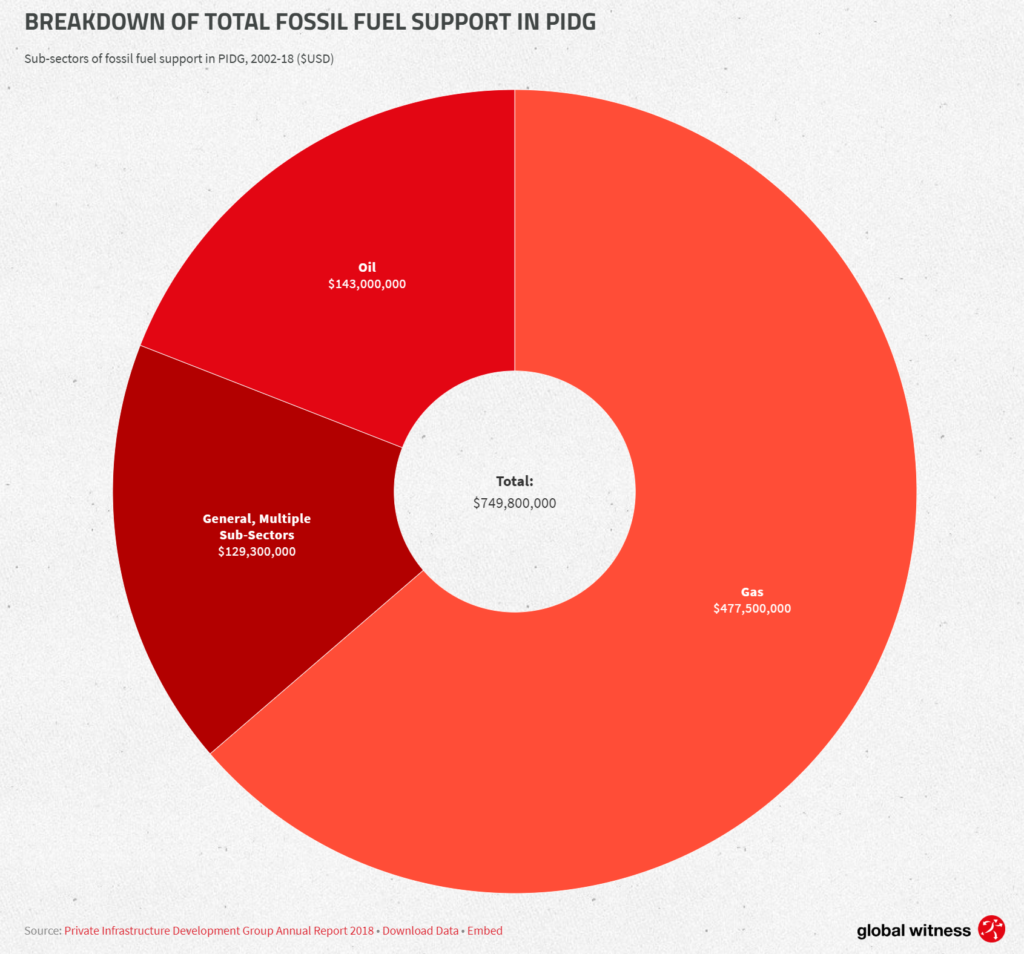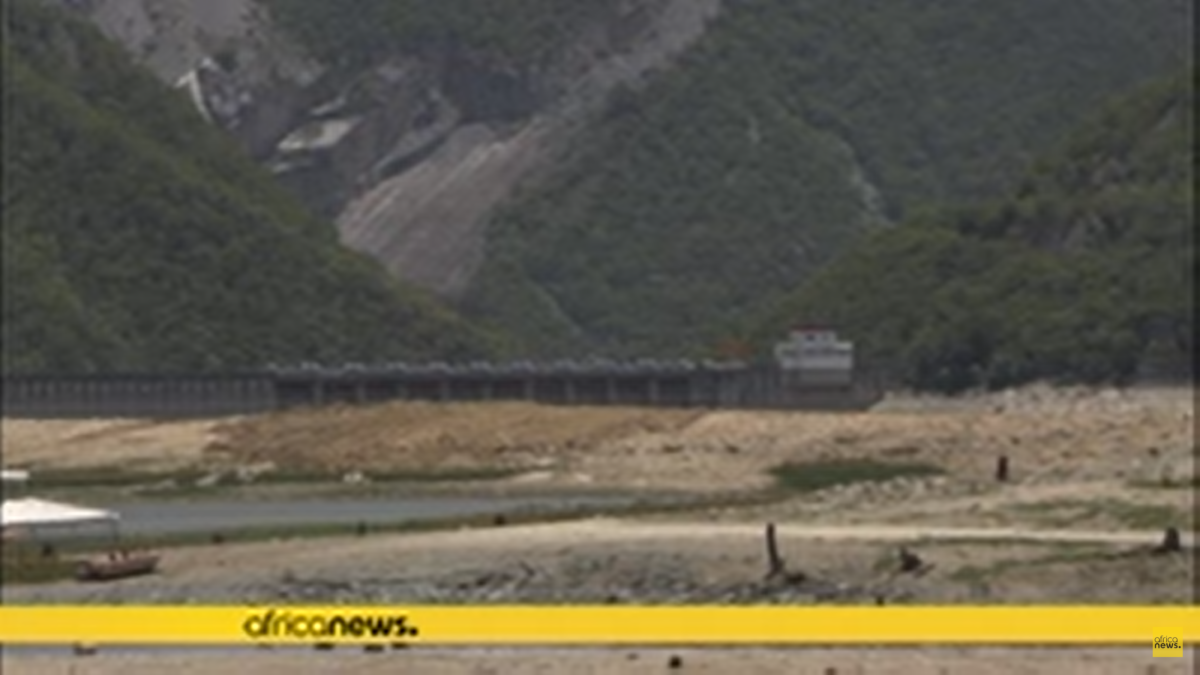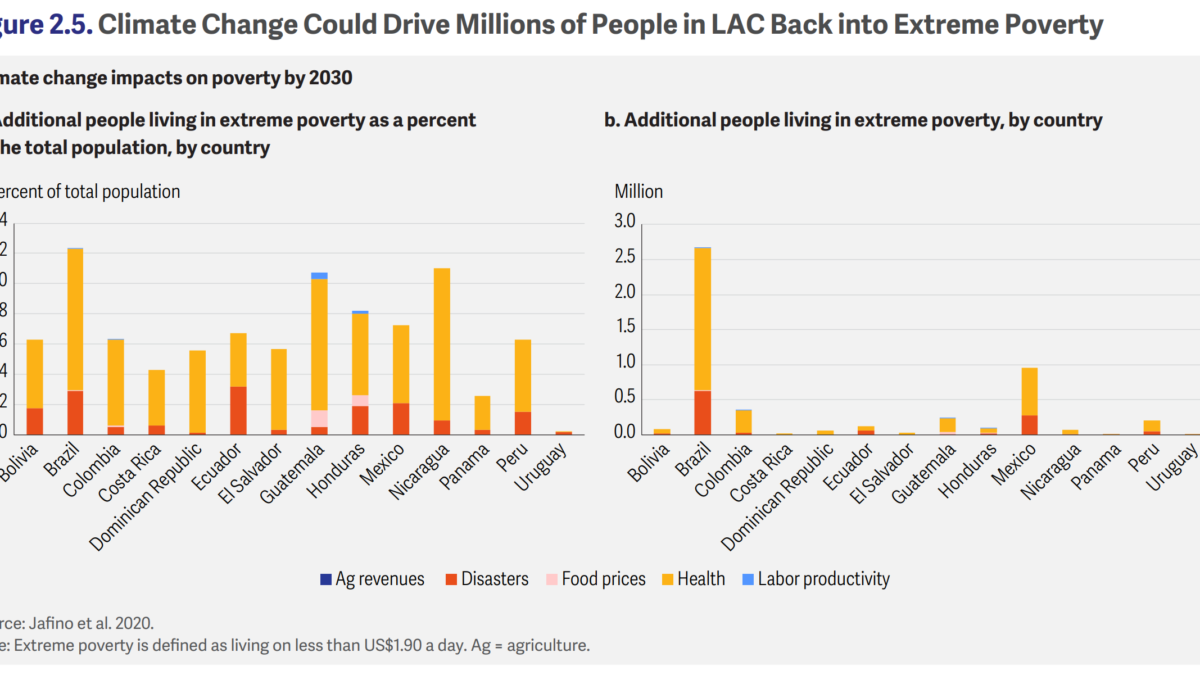Obscure investment fund uses UK aid money to finance fossil fuel projects – “A farcical situation where the Government, on one hand, spends aid money to mitigate climate change, and on the other hand finances fossil fuels all over the world”

6 February 2020 (Global Witness) – We are at the beginning of a year of climate spin by the British Government. This year, the UK will host the 26th UN Climate Change Conference (COP26) in Glasgow.
While the Government claims to be a ‘climate leader’, we reveal how a little-known investment group funded by the UK taxpayer has committed over $750 million to fossil fuel projects in some of the world’s poorest countries.
The London-based Private Infrastructure Development Group (PIDG), which funds infrastructure for development in poor and fragile countries – has received over $1 billion in UK aid money, officially classified as Overseas Development Assistance (ODA), since 2002. It has also received ODA money from the governments of the Netherlands, Germany, Australia, Switzerland, and Sweden.
PIDG has used UK aid money to fund fossil fuel projects using some of the world’s dirtiest fuels, in some of the world’s poorest countries. This has recently included heavy fuel oil (HFO) power plants in West Africa. Heavy fuel oil is one of the world’s most polluting fuels, polluting the air and accelerating climate change.
PIDG has used its $750 million spend on fossil fuels to unlock even greater sums of private sector investment, meaning that PIDG has been a key enabler of many fossil fuel projects across the world.
PIDG are also continuing to fund fossil gas power plants. The widespread claim that fossil gas is a ‘bridge fuel’ to a clean future has been debunked. If the world is to meet climate goals, we cannot build new gas infrastructure. […]
PIDG is just one of a patchwork of organisations and agencies funded by the UK Government that has had its huge support for fossil fuels revealed in recent times:

Research by CAFOD and the Overseas Development Institute shows that the UK spent £4.6 billion on fossil fuel energy projects overseas from 2010-17, with support spread across a range of departments.
UK Export Finance (UKEF), a Government agency tasked with assisting UK business abroad, gave 97% of their energy support from 2010-17 to fossil fuel projects. A study of their latest annual report suggested they provided a full £2 billion in support to fossil fuels in 2017/18 alone.
The cross-departmental Prosperity Fund, used aid money to finance two projects in China to ‘promote UK expertise in hydraulic fracturing’ (fracking). The fund spent money from the Overseas Development Assistance budget on 16 oil and gas extraction projects globally, for a total of £2 million between 2016 and 2018.
To these colossal numbers, we can add PIDG’s $750 million support for fossil fuels. It is likely that the Government funds overseas fossil fuels via further as-yet-uncovered mechanisms too.
This contributes to a farcical situation where the Government, on one hand, spends aid money to mitigate climate change and help vulnerable countries, and on the other hand finances fossil fuels all over the world, making the problem worse for the world’s poorest. The situation is so severe that a committee of MPs warned that this inconsistency threatens to ‘nullify the effectiveness of wider aid spending.’
Fossil fuels hinder, rather than help, development. With the rapid development of off-grid renewable energy, there is no longer any justification for supporting fossil fuel power generation with aid.
If the UK is to be a climate leader, this support for fossil fuels needs to end immediately. [more]


